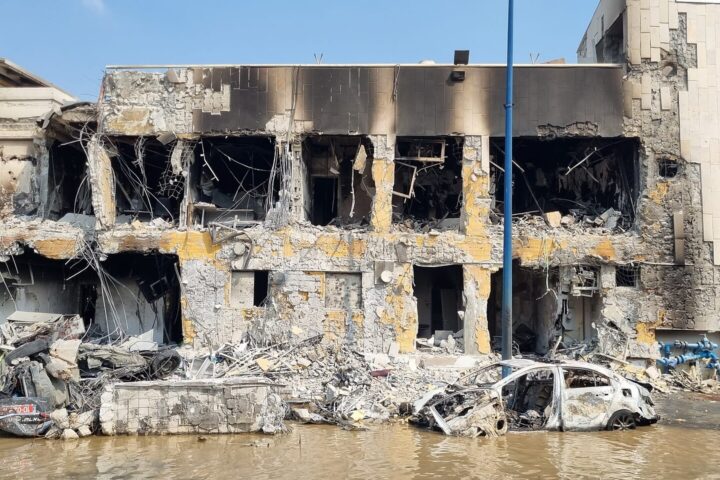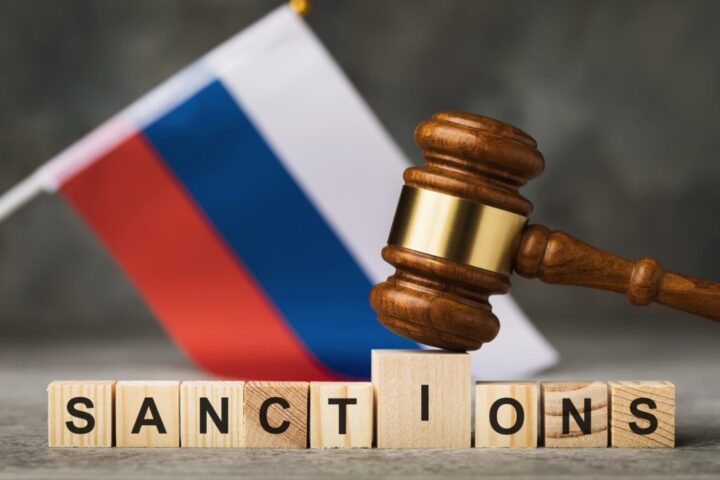 By Nick Kochan
By Nick Kochan
Western law enforcement agencies are closing the loopholes in sanctions policies in a bid to ratchet up the pressure on anyone seeking to circumvent sanctions on Russia.
A period of warning and advice for companies and individuals has now ended and a new era of enforcement and punishment is starting.
The EU’s recent announcement of a law to criminalise the violation of EU sanctions raises the stakes for companies taking any chances at all with Russian trade.
The new law will make it a criminal offence to help someone who is subject to EU restrictive measures to bypass a travel ban; to trade in sanctioned goods and run transactions with states which are hit by EU restrictive measures; to provide financial services or performing financial activities which are prohibited or restricted; and, to cover up the ownership of funds or economic resources by someone who is sanctioned by the EU.
The impact of the law will undoubtedly be felt in Cyprus. This former centre for much Russian expatriate finance is being subjected to growing intervention and interrogation by international law enforcement authorities.
The recent announcement that the United States was sending over a 24-strong group of financial investigators, including Treasury and FBI agents, to bolster the island’s complement of sanctions-busting officers, is indicative of the new urgency in sanctions enforcement.
Other western governments can be expected to send their own financial police to the island to strengthen its investigation of complex structures set up before March 2022, when Russia invaded Ukraine and sanctions on Moscow were strengthened. Other offshore centres, such as Nauru, BVI and Bahamas, will also feel the heat.
Another group of geographies are also in the sights of law enforcement seeking to ring Russia ever more tightly.
These are the central Asia group of countries like Kyrgyzstan, Kazakhstan, Armenia, Azerbaijan and Turkey, through which Russian traders import western goods for onwards export to Russia. A recent alert from the UK’s National Crime Agency pinpointed trade-based money laundering hinged on these countries for special attention.
“Sanctions should be placed on these countries if they continue to assist sanctions breaking,” said Bill Browder, CEO of Hermitage Capital.
Some sanctions loopholes are beyond the remit of western law enforcement. These include the world’s second largest economy, China, as well as India and other parts of Asia, such as Singapore and the United Arab Emirates. None of these countries has signed up to agreements to enforce sanctions.
Russian oil
Much Russian oil is imported into India and Singapore (and Turkey which has a selective approach to sanctions enforcement) for processing into oil products before being sold to Western companies.
Geography is not the only loophole in what is intended to be a widely flung curb on Russian evasion. Products that substitute for value and are being used to circumvent sanctions are likewise under scrutiny.
The UK’s National Crime Agency has warned those in the jewellery trade to watch out for gold and jewellery that Russians may be using to conduct trades as gold and diamonds are ready substitutes for money or other prohibited articles of value.
Gold
Gold is a laundering vehicle of choice for Russian sanctions evaders. Dealers in gold will be required to complete a growing amount of paperwork to show that they have completed the necessary checks.
Law enforcement agencies across Europe are also putting pressure on auction houses and even free ports to be more transparent in the ownership of valuable pieces of art as they too may be items of great value for trading by sanctioned Russian owners.
“I’d warn the art world that they have to be very careful what they do now. There are desperate Russians looking to the art world to help them out. Art is being used alongside property especially in the United Arab Emirates to get round sanctions,” said Chris Marinello of Art Recovery International, a UK-based art recovery agency.
“London-based auction houses should be the main focus of the authorities,” said one leading art gallery owner.
“There is a lack of transparency concerning their ownership. Even though laws are in place for them to perform due diligence on the buyers and sellers of painting, I doubt they follow them,” said Charles Pocock, chief executive of the Meem Gallery in Dubai.
“Even if the auction house has strict controls, there may be a rogue officer who cuts corners. Stolen art has long been a way of transferring cash on the black market.
“A stolen Rembrandt swaps hands and reappears elsewhere. Every asset can be moved. It’s not easy to move $100 mln but a $100 mln painting can be moved between free ports in Hong Kong, Geneva and Singapore”, Pocock said.
Freeport
Sanction controls can be bypassed by moving ownership of a piece of art (or indeed other objects of value) in a freeport, where regulation is deliberately kept lax to encourage cross-border trade, he warned.
Law enforcers are looking to financial institutions to enforce the regime more strictly.
Banks have a closer relationship to many economic structures that may be used to hide Russian involvement. For example, the bank may see a warning sign if a company uses a trust that was set up with a trust connected to Russian clients [a so-called ‘hidden trust’], or where the trust has a jurisdiction known to be frequented by Russian individuals.
Authorities are stepping up their links with banks and other professionals to create better flows of information on complex issues like trusts and ultimate beneficial ownership (UBOs).
The banks’ task in opening up such structures is compounded by legal and financial complexities such as jurisdictional differences.
For example, the U.S. test designates a company as sanctioned where it is 50% or more owned by a sanctioned entity on the U.S. Treasury’s SDN list, while the EU test says that a company is regarded as sanctioned where a designated entity either owns 50% plus of it, or controls it.
For companies challenged by regulators on the control point, there may be some “wiggle room” in EU regulations, David Lorello of Covington and Burling said.
“A company may be able to show that a designated entity controls or owns the majority of a counterparty, but the company operates on an independent basis. Then you can provide reassurance that it is not the alter-ego of the sanctioned party. That possibility exists from the EU perspective,” he said.
Uncovering these ownership structures can be at least as complex as the work required for anti-money laundering checks, said the lawyer.
The landscape of sanctions enforcement is growing more complex, while the cost for professionals of falling foul of international standards, regulations and law is getting higher. Cyprus is part of the frontline of a new and more aggressive international implementation effort.
Nick Kochan is an international writer and journalist specialising in economic crime, money laundering, sanctions and compliance. He has published books on money laundering, corruption and fraud. Kochan appears frequently on the BBC and Sky.










